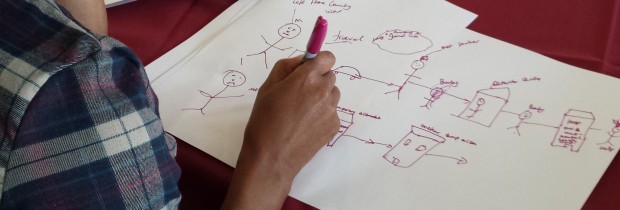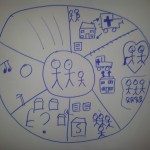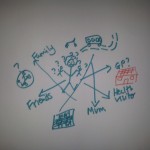Multiple Cause Analysis in Essex
How can we find better ways to support and enhance the lives of the people of Essex? First we’re working out what the real issues are.
Colleagues from across Essex County Council are doing some very different kinds of activities as part of an ambitious project to improve the support we provide for children and families.
This week a group of leaders from across the council (and representing different service and commissioning areas) came together to explore whether we had the right understanding of the challenges we try address through early years provision.
Supported by ThePublicOffice, colleagues were introduced to a technique called Multiple Cause Analysis and were supported to use it to do some thinking about some of the specific things we’d like to improve in early years, such as school readiness.
Most issues and problems have multiple or complex causes, some of which are not at all obvious on first reflection. The technique helps you identify the different causes and effects of problems and to map these visually so you can get to grips with what’s really going on when, for example, a child presents at school with speech and language difficulties.
The diagrams you create can also help you to think through where you could most helpfully support, intervene or do something differently to address the problem and produce a different effect. Drawing these up stimulates great conversation when you do it in groups.
Take a look below at some of the insights and imperatives that emerged from the session. Colleagues will be developing these further as this work progressed. Watch this space.
- How could we start with the strengths that people have and amplify and build on the good things that they already do?
- How can we model great relationship building and other key values and behaviors in the way we design and deliver support?
- What would it look like to build an offer utterly around the needs, lives and convenience of parents and carers?
- What if asking questions and seeking support was seen as a good thing?
- How could we offer support when it is needed (rather than when it is convenient for us to provide it)?
- Something is wrong with our mode of delivery – what would work better?
- How could simplify guidance and support to children and parents? (we make things so complicated. We should be clear on how they can get a good start in life and provide some clear indicators for noticing problems. It shouldn’t be so difficult)
- It seems fruitful to think more about growing and extending the networks people have and less about delivering services
- There are real opportunities presented by collaborative technologies and social media. Are we brave enough to exploit them?
- We need to intervene early – how do we build an offer around this imperative?


